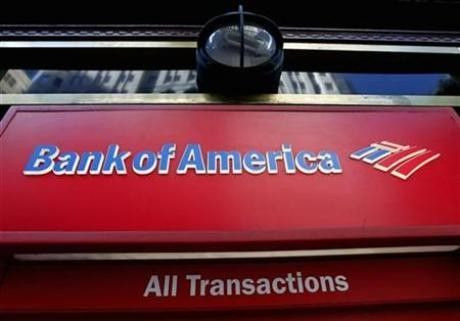Debit Card Fees Draw Antitrust Concerns From House Democrats

Debit card fees that banks such as Bank of America have introduced to consumers have drawn antitrust concerns from a group of Democrats in the U.S. House of Representatives, who now want the U.S. Department of Justice to investigate.
Rep. Peter Welch, D-Vt., sent Attorney General Eric Holder a letter Thursday asking him to open a probe into whether communications between banks and industry trade groups constitute price signaling or collusion.
"Statements made by individual banks and their trade associations raise questions about whether some price increases that have occurred this year have actually been coordinated," the letter, signed by four other House Democrats.
Bank of America Sept. 30 announced that consumers will be charged $5 a month to use their debit card. Chase -- a J.P. Morgan-owned bank--and Wells Fargo, meanwhile, are testing a $3 monthly fee in select markets.
Along with Bank of America, these companies make up three of the nation's four largest banks.
Banks Passing Losses on to Consumers?
The banks blamed the new fee on a provision of 2010's financial reform legislation, Dodd-Frank, gave the U.S. Federal Reserve power to regulate the fees that businesses pay to banks when customers use a debit card. The Fed capped these fees at 21 cents for each transaction to more accurately reflect the processing costs banks incur.
The banks are now shifting their losses onto their consumers with debit card fees.
Welch, who helped limit these fees with Sen. Dick Durbin, D-Ill., said that comments from banks and trade groups about new consumer fees indicate potential collusion.
"There is clearly no problem with banks making independent business decisions based upon the landscape as they see it," the letter read. "Antitrust issues are raised, however, if they are attempting to facilitate group decisions on their prices, terms and conditions."
The Electronic Payments Coalition--its members include JPMorgan Chase, Bank of America, Wells Fargo, and a slew of other banks and trade associations--said in response to the letter that the new consumer fees are the result of the provisions in Dodd-Frank that Welch pushed "at the behest of giant retail."
"It's ironic that Congressman Welch and some members of Congress continue to feign surprise and outrage at the consequences of an amendment that they themselves advocated at the behest of giant retail," said a coalition spokeswoman Trish Wexler. "This was an unprecedented move by government to intervene in a free market, leaving businesses with no choice but to turn to their customers to make up the difference."
© Copyright IBTimes 2024. All rights reserved.





















